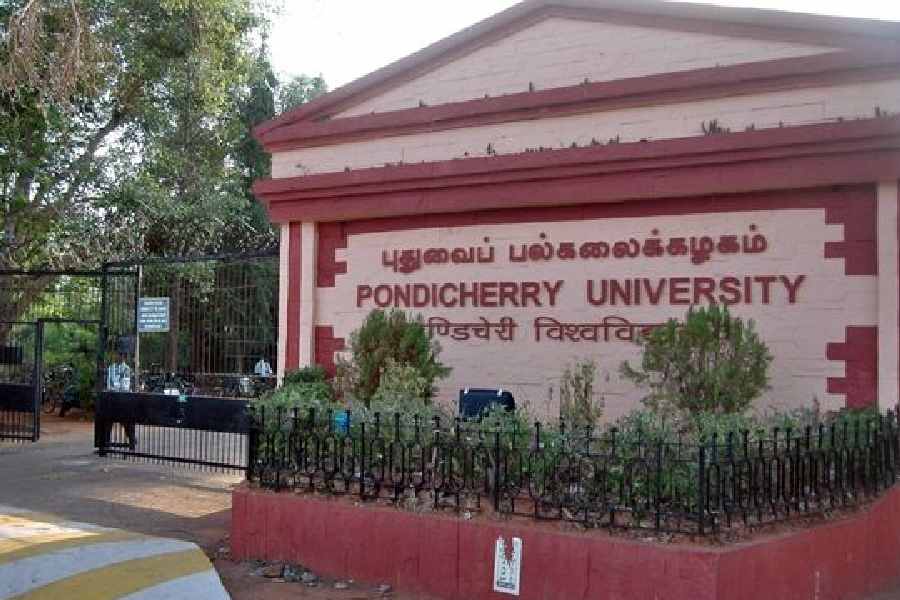Pondicherry University is awaiting a vice-chancellor three months after a committee interviewed shortlisted candidates and submitted its recommendations to the education ministry.
The government is hesitant to share information on where the file is currently pending, raising questions about the opacity in the selection process in higher educational institutions.
Pondicherry University is just one of a series of examples of excessive delay in the movement of files after the conduct of interviews.
Two retired bureaucrats, who worked in the education ministry, told The Telegraph that the interview by the search-cum-selection committee is the last major step in the appointment of VCs. After the interviews, it should not take more than two weeks for the issuance of appointment letters with the approval of the Visitor, the President of India.
“The conduct of interviews usually takes time because the search-cum-selection panel comprising experts takes time to sit as per the convenience of all panel members,” a retired official said.
“The panel gives its recommended list of candidates the same day they hold the interview. The next step is to submit the recommendations to the education minister who may suggest his preference from the panel of suggested names. Then the ministry sends the names to the President’s secretariat where it is routinely approved, or sometimes rejected, within a week,” he said.
The retired bureaucrats said an unofficial layer of scrutiny had been introduced by the current dispensation. The education ministry invariably sends the files related to the appointment of VCs to the Prime Minister’s Office (PMO) for advice, both retired officers said.
“There is no provision under law to send files of VC appointments to the PMO. But the education ministry does that unofficially. The unexplained delay happens at the PMO,” one of the retired bureaucrats said.
Before Pondicherry University, different search-cum-selection panels had conducted interviews for the post of VC at Jamia Millia Islamia and Mahatma Gandhi Antarrashtriya Hindi Visvavidyalaya.
At present, seven central universities are waiting for their VCs even though interviews have been carried out in the last six months. Interviews have also been conducted for the post of director at the Indian Institute of Advanced Studies.
A VC of a central university said in the absence of a regular VC, the in-charge VCs do not take the risk of making any major decision, recruiting faculty members or undertaking any developmental work.
The unexplained delay has drawn the ire of academics. Maya John, a member of the Academic Council of Delhi University, said the delay reflected increasing government control over appointments.
“The reported delay in the approval of candidates selected as vice-chancellors of central universities represents an unfortunate rising trend. It represents the attempt to increasingly control appointments in central universities and hence a political cronyism of the worst kind,” John said.
An email was sent to higher education secretary Sanjay Murthy to understand the education ministry’s perspectives on the delay in appointments. His response is awaited.











